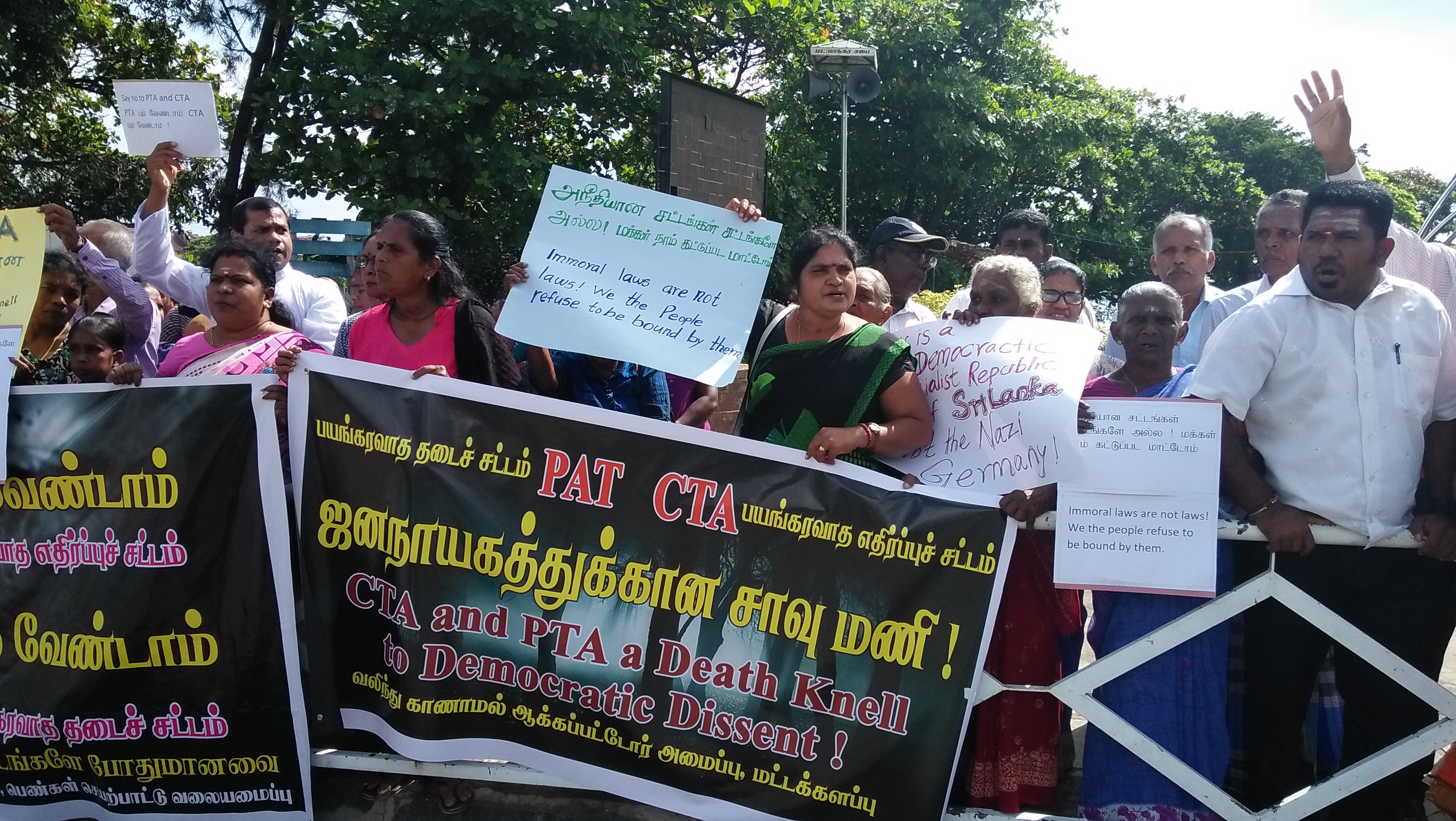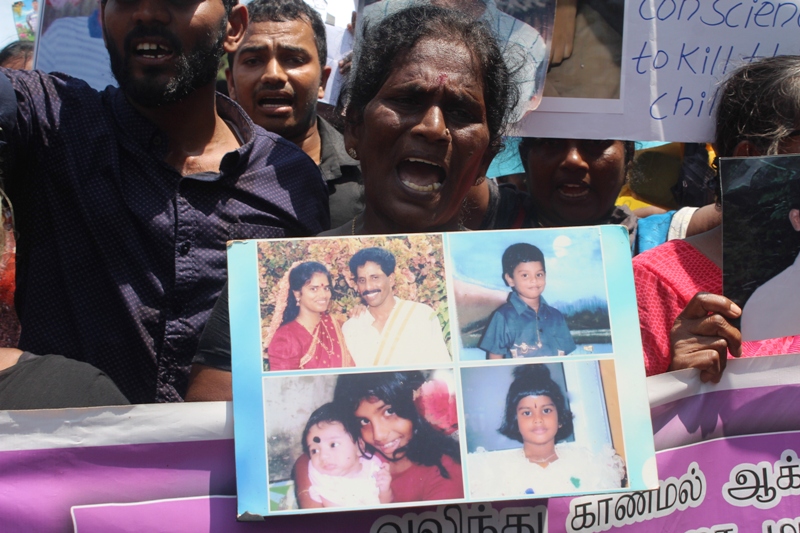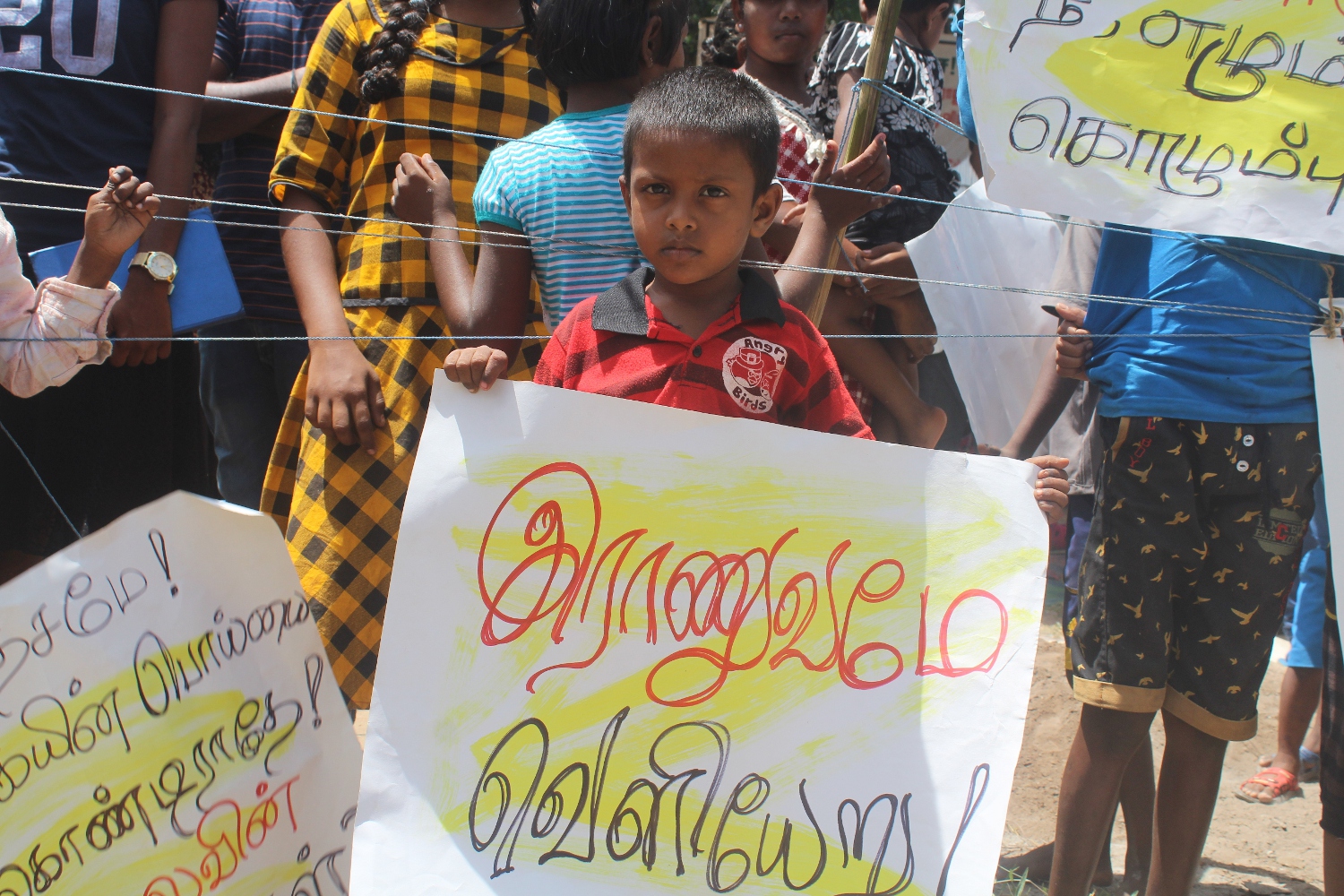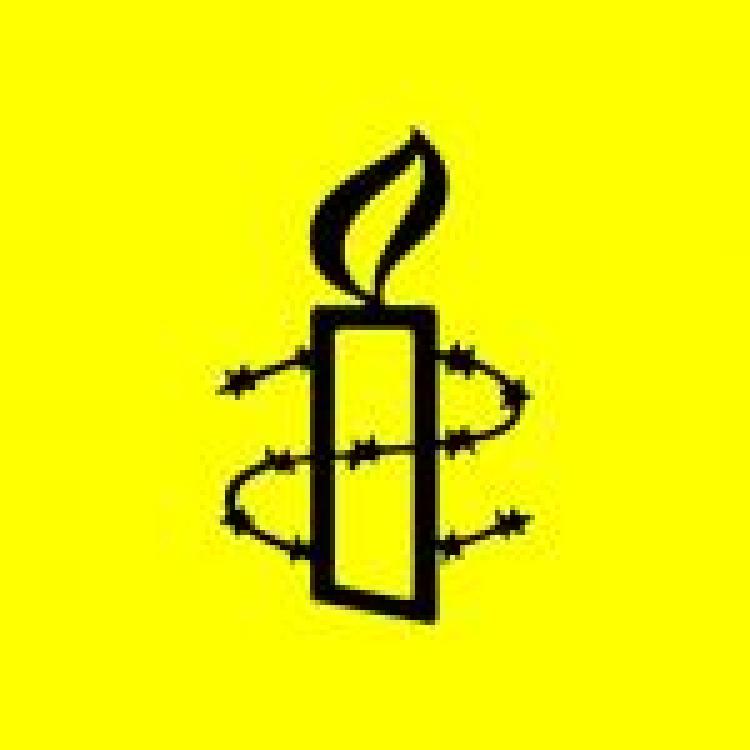Protester calls for release of political prisoners. 20 Jan 2019
The US State Department released its 2018 report on the human rights this month, raising ongoing concerns in Sri Lanka of impunity, arbitrary detention, unlawful killings, torture, sexual abuse and media intimidation.
The report highlighted several killings that have taken place in Sri Lanka, including that of a Tamil man in Ariyalai in 2017 and two Jaffna University students in 2016. “There were reports that the government or its agents committed arbitrary or unlawful killings,” it said.
“There were reports of harassment and intimidation of journalists when covering sensitive issues,” the report noted, highlighting the Tamil Guardian journalist Uthayarasa Shalin, who faced months of harassment and targeting, including the summoning and questioning of his friends and family members purportedly based on his coverage of a Hindu temple festival where a map of the Tamil homeland was displayed.
Arbitrary detention, torture and sexual violence
 Batticaloa residents condemn PTA and draft CTA. February 22, 2019
Batticaloa residents condemn PTA and draft CTA. February 22, 2019
The report released also notes that from June onwards there had been 193 allegations of “physical and mental torture by state actors” and that "torture by police remained endemic throughout the country". Citing the Human Rights Commission of Sri Lanka (HRCSL), the report finds “torture committed by police forces was routine and continued throughout the country”.
This issue is compounded by a continued policy of arbitrary detention. The HRCSL received 101 complaints of such detention and arrest through June 2018. The Bureau cites the HRCSL commissioner of prisoners which estimates that the prison population has “exceeded the system’s capacity by nearly 64 per cent”.
There were allegations of sexual abuse committed by government and security officials “against wives who came forward seeking information about their missing husbands or against war widows who attempted to claim government benefits based on their deceased husbands’ military service”.
The policy of arbitrary detention is influenced by the repeated use of the PTA which empowered officers to arrest and hold individuals of suspicion without charge.
In October 2018, dozens of Tamil prisoners, including former LTTE cadres, across the counter held a hunger strike demanding an immediate resolution to their prolonged detention. They demanded that the government either to indict them or provide a pathway for their eventual release.
In February 2017 the government had said it will suspend arrest made under the PTA. Despite this statement, the government has made at least arrests under the PTA during 2018. The US report notes that “an estimated 70 to 130 individuals remained in detention from prior PTA arrests”. Tamils have consistently protested demanding the repeal of the PTA.
Land Disputes
The report further details the ongoing problems with the release of land occupied by the military.
The Sri Lankan government has reported that it has released more than 83,000 acres of land, representing more than 80 per cent of all land occupied during the war.
Tamil groups have criticised the government for the glacial progression on this issue and the report details concerns that the “the military held lands it viewed as economically valuable”. The land released has often been vandalised and is often of poor quality.
The report also details that “Hindu and Muslim groups reported they had difficulty officially claiming land they had long inhabited after Buddhist monks placed a statue of Buddha or a bodhi tree on their property”.
Disappearance

Batticaloa protest demanding justice for the disappeared, March 20th, 2019
It further detailed Sri Lanka’s failure to provide answers for a large number of those who have disappeared during the war and its aftermath.
In July 2017, the UN Working Group on Enforced or Involuntary Disappearances reported 5,859 outstanding cases of enforced or involuntary disappearances.
The government has made some modest steps to address these issues as detailed by the report:
“In February, the government appointed seven commissioners to the Office on Missing Persons. The office met members of the public and family members of missing persons in Mannar, Jaffna, Kilinochchi, Trincomalee, Matara, and Colombo. In August it issued an interim report that provided a series of interim relief proposals and justice-related recommendations for families and victims of disappearances. At year’s end, the office was finalizing a list of approximately 20,000 names of missing persons dating from 1983”.
Despite these actions, human rights groups including Amnesty International has reported the diminishing faith of Tamils and international actors in domestic mechanisms in delivering justice on these issues. This has been highlighted by recent protests in Batticaloa held by Tamils demanding to know the fate of their loved ones.
LGBT concerns
The report detailed the criminalisation of same-sex relationships and the continued discrimination transgender people face including “arbitrary detention, mistreatment, and discrimination accessing employment, housing, and health care”.
Whilst prosecutions under the law were rare, human rights organisations have reported the police threatening to “assault, harass, and sexually and monetarily extort LGBTI individuals”.
Read the full US report here.


